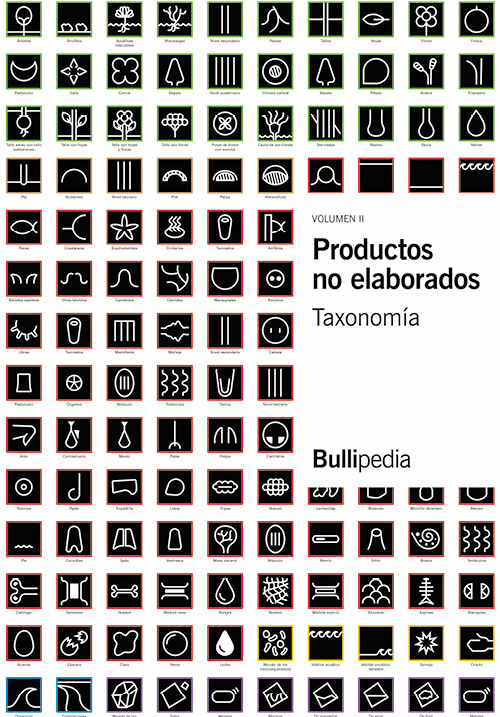What is cooking. The act: cooking. The result: cuisine
What is cooking is envisaged as a follow-up to the book Los secretos de El Bulli. This volume is the work of Bullipedia under the direction of Ferran Adrià and employing the Sapiens methodology.
Given that cooking is a broad and complex act, there are countless ways of preparing food. This book addresses all these possibilities. With its help, the reader can reflect upon what cooking really involves.
466 pages
230 x 330 mm
Hard cover
ISBN: 978-84-09-12631-6

What is cooking is conceived by Bullipedia to offer a holistic view of both the act and process of cooking and its result, cuisine. This work is based on the Sapiens methodology, devised by Ferran Adrià and elBullifoundation through the perspective of systemic thinking. Due to its scope and wide-ranging content, this book will offer the reader an insight into the products, elaborations and cuisines that are addressed in other volumes of this encyclopaedia.
In light of our understanding of the results produced when a combination of products, techniques and tools are allied to an energy source, What is cooking allows us to examine the circumstances of an act that human beings have undertaken since the Palaeolithic Age. To do this, cooking is reviewed from its origins in a search for its limits and an assessment of its possible applications.
Starting from Sapiens premise that a better understanding results from the ordered research of a subject, What is cooking takes the reader through all the facets of this complex and fascinating field. Only in this way, “by giving order to cooking”, can we address the different concepts, elements and characteristics within that reality. The goal of this volume is to outline the infinite possibilities and future innovations open to the world of cooking.
In keeping with the approach of Bullipedia, the focus of this research is directed towards cooking and its place in the tradition of the Western gastronomic restaurant sector. To find an answer to the question stated in the title of this volume necessitates the inclusion of contexts, visions and circumstances that result from opening new perspectives and expanding horizons. For this purpose, we also include actors, eras and scenarios in which cooking adopts meanings beyond those that pertain to gastronomic dining.
In this section is a short summary of each chapter of the book
Download in PDF
CHAPTER 1
LET’S START BY UNDERSTANDING LEXICAL-SEMANTIC ASPECTS
Continue reading >

CHAPTER 2
THE BIRTH OF CUISINE
Continue reading >

CHAPTER 3
WHAT DO HUMANS DO WHEN THEY COOK? WHAT DO THEY DO IT FOR?
Continue reading >

CHAPTER 4
MILLIONS OF PEOPLE COOK EVERY DAY: THERE IS NO SINGLE PROFILE FOR A COOK
Continue reading >

CHAPTER 5
A SCIENTIFIC AND SYSTEMATIC VIEW OF COOKING
Continue reading >

CHAPTER 7
WHAT DO WE COOK AND HOW DO WE COOK IT?
Continue reading >

CHAPTER 8
GIVEN WHAT WE HAVE SAID SO FAR, COOKING CAN TAKE ON DIFFERENT MEANING
Continue reading >

CHAPTER 9
AS AN ACTION THAT IS REPEATED OVER TIME, COOKING GENERATES CONSEQUENCE
Continue reading >

It’s getting harder and harder to stand out from the crowd. Bullipedia will be fundamental for coming generations wanting access to ground breaking knowledge.
La razón

Anyone who has interviewed Ferran Adrià will have been asked: Is peeling a tomato cooking? Here are the answers to the activity that changed Humanity.
7 Caníbales

This is clearly a book destined not only for gastronomy professionals, but also for anyone who enjoys cooking, even if only occasionally. We are sure that the knowledge it imparts would come in useful to any human being due to the simple need to feed oneself.
Gastronomía&Cía





































